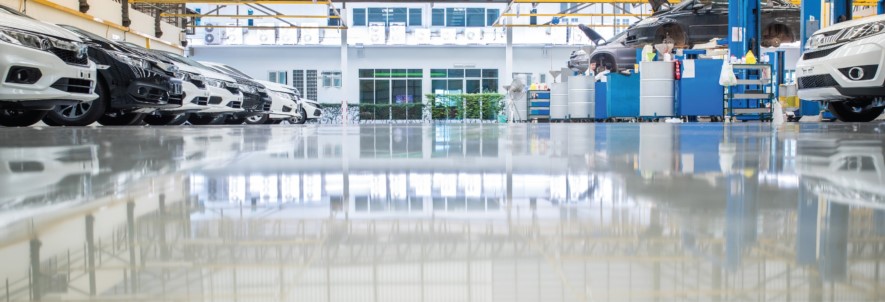Epoxy resin coatings are commonly utilized to protect water pipes, floorings, concrete, and other surfaces in various sectors. This flexible chemical protects materials against corrosion and functions as a surface protector. However, despite its widespread use, it can result in major health problems if not handled properly. As a result, personal protection equipment (PPE) should be used when handling this substance. What are the primary epoxy benefits and drawbacks?What is epoxy sensitization, including the possible health safety issues, are being followed below.
Epoxy sensitization
Another potential drawback of this popular industrial material is epoxy sensitization. This occurs when a person’s immune system becomes more sensitive or reactive to epoxy resins and chemicals present in them. Epoxy sensitization is the process by which a person becomes allergic to a material.
As a result, even minor exposure in the future could trigger a severe allergic reaction. Irritation of the eyes, nose, throat, lungs, and skin, ranging from mild to severe, is one of the signs and symptoms.
Advantages of epoxy
- Any material to which an epoxy coating is put has exceptional UV, heat, and abrasion resistance. It protects surfaces such as pipes, metal, floors, countertops, and equipment parts by preventing corrosion and acting as a sealer. Epoxy is a quick-drying, very hard, and long-lasting substance.
- Epoxy is also an excellent insulator. It is commonly used in transistors and electrical circuits to protect parts from moisture, dirt, dust, and other debris that can cause materials to deteriorate over time.
- Epoxy’s robust; high-performance adhesive capabilities are perhaps its most appealing feature. It is considered a safer, longer-lasting alternative because it is far more resistant to chemicals and heat than other glues. Even heavy materials like concrete, wood, metal, glass, stone, and plastics are regularly bonded with epoxy.
- Epoxy gives a gleaming clear finish to surfaces from an aesthetic aspect. However, pigments and other chemicals can be easily added to the resin to make it look like other materials, such as granite, once dried and hardened.
- This is a cost-effective option for builders and homeowners who want to avoid the expensive expense of stone while still getting a high-quality, abrasion-resistant countertop and other surfaces.
Disadvantages of epoxy
Epoxy is made up of compounds that are potentially harmful to human health. For example, inhalation or direct contact exposure, particularly when severe or protracted, might cause acute problems like:
- Inflammation of the skin (contact dermatitis)
- Allergic responses on the skin (allergic dermatitis)
- Itching of the eyes
- Irritation of the respiratory tract causes asthma-like symptoms and breathing issues (e.g., nose, throat, and lungs)
- aches and pains
- Feeling dizzy
- nauseous
- Perplexity
Cause health issues
Exposure to certain chemicals in epoxy may raise the risk of fertility difficulties, miscarriage, birth abnormalities, and stillbirth in pregnant women (CDC). Certain solvents widely used in epoxy resins have been shown to lower sperm count in men. Certain older kinds of epoxy resin containing a chemical known as epichlorohydrin have been found to cause cancer in laboratory animals, implying that it may also cause cancer in people. On the other hand, newer versions of epoxy appear to be less likely to offer this concern due to reduced levels of epichlorohydrin.
Additional safety tips using PPE
Epoxy’s health hazards are worrying, but the good news is that there are measures to reduce your exposure. Employers can safeguard their workers from the potentially dangerous effects of inadvertent contact by following the guidelines contained in the Safety Data Sheets (SDSs). The following are some of the most generally suggested PPE for handling epoxy:
- Wear chemical goggles with side shields or goggles with a full-face shield to protect your eyes.
- Respirators
- Gloves
- Sleeves and coveralls
- Aprons
- Boots
The chemical protective coveralls and aprons, shoe covers, and sleeves are available from International Enviroguard to help avoid exposure or contact with the epoxy. Thus, know the epoxy advantages and disadvantages to find the right equipment for your employees to work safely and comfortably.



